New returns to lead Grant Park Orchestra in compelling Sibelius
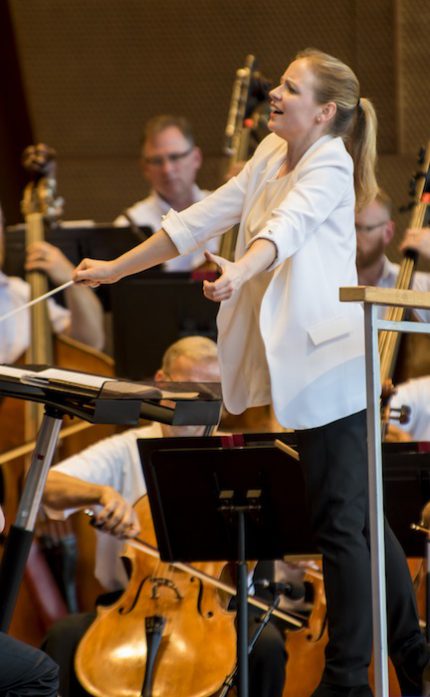
Gemma New is one of those musicians who seem to thrive on pressure.
Last summer, the young New Zealand native made an impressive Grant Park Music Festival podium debut as a last-minute sub. With a single rehearsal, she led a program that included Richard Strauss’s sprawling Symphonia domestica garnering successful results.
And just 48 hours before she returned to the Pritzker Pavilion stage Wednesday night, New conducted the world premiere of Michael Gandolfi’s In America at the Tanglewood Festival, a complex 30-minute song cycle scored for massive orchestra and six soloists.
After a quick flight to Chicago, New had the benefit of her two full scheduled rehearsals this time and the musical results were largely just as notable.
She began the evening with music of her compatriot, Douglas Lilburn (1925-2001). The shadow of Sibelius looms in Lilburn’s Aotearoa Overture, written in 1940, as well as a bit of Hollywood schmaltz. If an individual voice is not evident, Lilburn’s melodic score is engaging, well crafted and falls easily on the ears. New led a warm and lyrical reading, characteristically skirting bombast in the brassy coda.
We got the real thing with the program’s principal work, Sibelius’s Symphony No. 2.
The first two of the Finnish composer’s seven symphonies still manifest elements of Russian Romanticism, but the Second also has Sibelius finding his own distinctive voice. In the woodwind skirls, weighty chord clusters and rumbling strings and brass, there is a sense of the windswept Northern landscape that seems inextricably linked to Sibelius’s austere style.
From her careful moulding of the horn statement in the opening bars, New led a fresh and compelling performance of this challenging music. The petite conductor appears to view this work more as a harbinger of Sibelius’s leaner symphonies to come than the big-boned Tchaikovskian Romanticism it hails from.
With clear, coaxing gestures, she drew superb playing from the orchestra in a performance of fine musical integrity. Sections unfolded organically with alert focus on each movement’s architecture and the long line. Contrasting episodes were pointed up and climaxes given sure impact while avoiding sheer volume and rhetorical excess.
The slow movement benefited most from New’s precisely focused, unflashy direction, emerging almost as a mini-tone poem in itself. New brought out the brooding strangeness of this music as surely as the restless bass rumbles, snapped-off brass fragments and nostalgic pages.
The scurrying Scherzo led effectively into the finale. Yet while New’s patient direction negotiated the ebb and flow skillfully, here the performance didn’t quite take flight as it should. New seems reticent to give full power and sonic impact to the big moments (also evident in her underplaying of the Strauss climaxes last year). There was a lack of tension and cumulative excitement in the buildup to the coda with the final sumptuous appearance of the broad lyrical theme failing to achieve liftoff. The contrast couldn’t have been greater between New’s careful, respectable reading and the edge-of-the-seat thrill ride that Susanna Mälkki brought to the same work with the CSO last summer at Ravinia.
Apart from some horn disarray, the Grant Park Orchestra gave New everything she asked for with polished and energized playing throughout.
The evening’s centerpiece was Franz Liszt’s Piano Concerto No. 2. The Hungarian composer’s Second Piano Concerto has two good things going for it: it’s short and it’s not quite as awful as his First Piano Concerto.
Still, it takes a first-class artist to make something worthy out of this mishmash of empty bravura and banality. Kirill Gerstein is such a pianist and his seamless virtuosity and intelligence provided enough supple phrasing and poised expression to nearly make one believe that this is real music. Gerstein’s technique is faultless and he vaulted through Liszt’s glittery grab-bag of vacuous effects with unruffled assurance and digital brilliance.
New and the orchestra were alert and sympathetic partners. Some orchestra sections needed firmer presence but the rapid-fire exchanges between soloist and orchestra were fluently handled.
David Danzmayr conducts the Grant Park Orchestra 6:30 p.m. Friday and 7:30 p.m. Saturday. The program includes Ralph Vaughan Williams’ Norfolk Rhapsody No. 2, Mendelssohn’s Symphony No. 3 (“Scottish”) and Andrew Norman’s Switch with Colin Currie as percussion soloist. gpmf.org.
Posted in Uncategorized

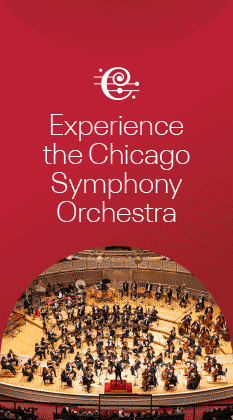
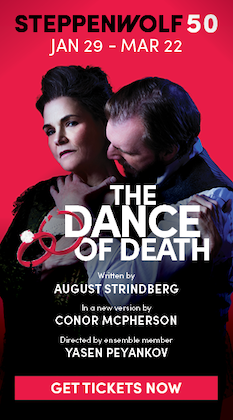

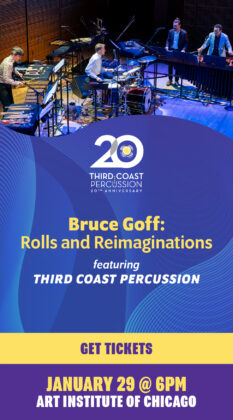
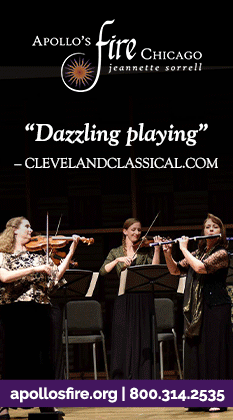
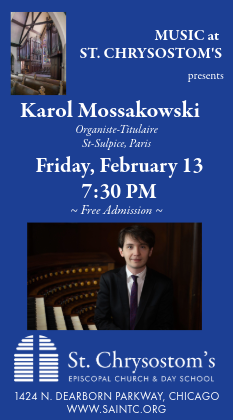
Posted Aug 18, 2018 at 3:44 pm by Mike Miller
Gemma New’s performance of the Sibelius 2nd Symphony was magnificent!
Liszt’s 1st Piano Concerto is not awful, but this critic’s snide remark is.